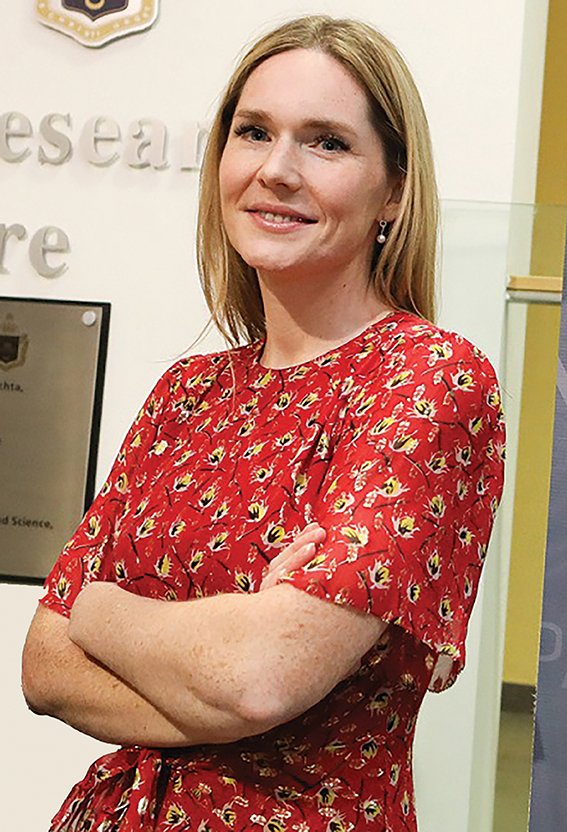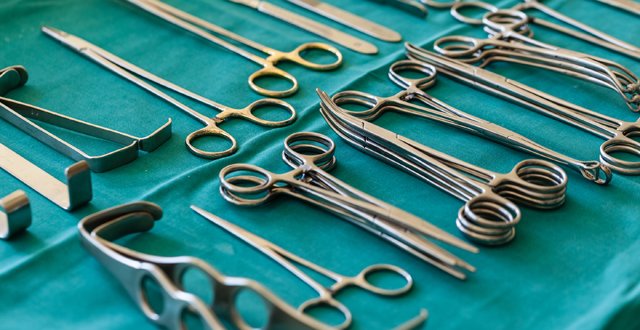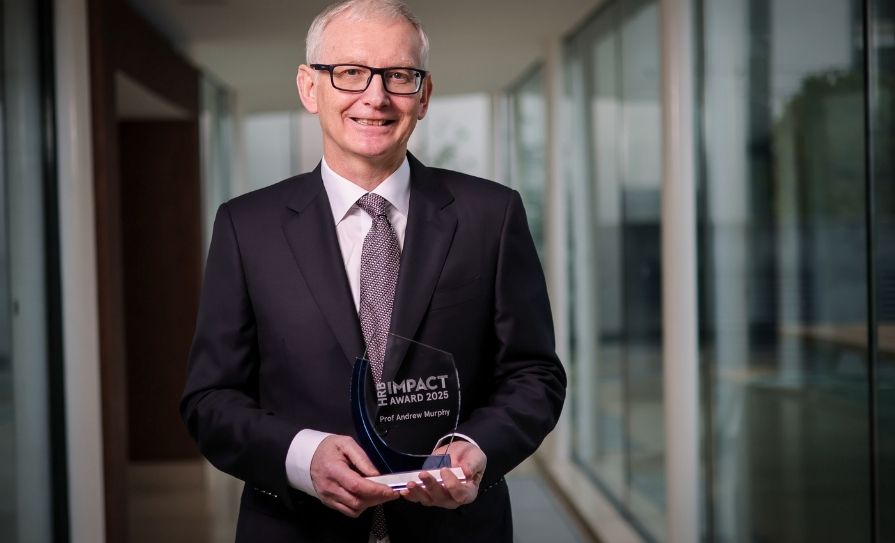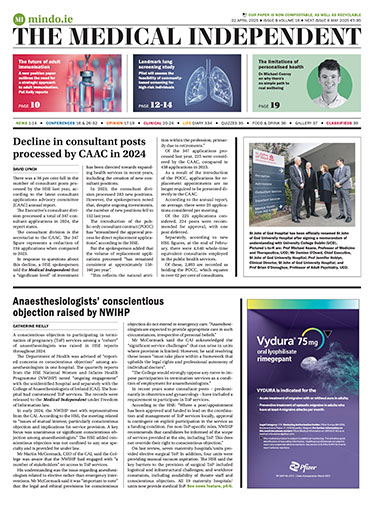Sarah Gallagher speaks to Prof Helen Heneghan, University College Dublin’s first female Academic Professor of Surgery, about what she hopes to accomplish in the role
In June this year, University College Dublin (UCD) announced that bariatric surgeon Prof Helen Heneghan would be the new Academic Professor of Surgery.
“I hope to, for one, firstly influence undergraduate students and their perception of surgery,” Prof Heneghan told the Medical Independent (MI), sitting in her office in St Vincent’s University Hospital, Dublin.
“I really want to reinvigorate the interest in surgery, as not just a subject, but to again open the students’ eyes to it as a great career.”
Women in surgery
She said that interest in surgery as a career has been on the decrease in recent years, “particularly among females, where they consider it a very challenging discipline or subject — a very challenging career. I think people in the profession haven’t helped that — haven’t allayed their fears,” she said.
“Surgical training has changed; in trying to make it shorter, they have actually made it probably a little less appealing and also at the end, the consultant appointments aren’t as attractive as they were before… departments are understaffed, they’re under-resourced, there’s a pay disparity between different levels of consultants, so it’s not an attractive discipline anymore and I really want to change that.
“Secondly, I think my own areas of interest in terms of research will add a lot to our understanding in Ireland of obesity, its complications and its treatments. So I’m really excited about being able to develop that area of my career and this position is a great platform from which to do that.”

She is also notably the first woman to have this position at UCD. This is an element of the role that she is looking forward to; she hopes to be a role model to female medicine students at UCD that they previously may not have had. “I mean, over 50 per cent of medical students at the moment are female, I think they need a role model that they can see in surgery to illustrate to them that it’s a great career, regardless of gender,” she said. “So that’s one of the most exciting things about it as well… to be a different role model for them.”
Prof Heneghan said that the numbers of women in surgery at consultant level and leadership positions are growing, which she thinks will make a difference to young women in medicine. She hopes that it will “set a really good example” for trainees. The RCSI has opened an Association of Women Surgeons chapter, which she described as “forward-thinking,” as well as recently launching Ireland’s first fellowship for women in surgery.
Prof Heneghan acknowledges that with a procedure-based discipline like surgery, especially where the volume of complex cases is limited, travelling abroad or extending the length of training can be a reality for surgery trainees. Requiring an extension of training can be necessary for those who need time to have a family, but she said “that applies in… not just medicine, but every career.”
Bariatric surgery
Prof Heneghan’s main area of interest and specialty is bariatric surgery. She trained as a surgeon in Galway University Hospital, but received bariatric-specific training over two years in the Bariatric Metabolic Institute in Cleveland, Ohio, US, and finished her training with a bariatric fellowship in the UK.
“From just a career perspective, my interest being bariatric surgery, I hope to be able to influence other trainees to really enjoy that and see it as an excellent career choice and sub-specialty interest.”
Obesity care is a strength of St Vincent’s Hospital and of UCD, Prof Heneghan said, and she is looking forward to the research opportunities that her new position can offer. “It puts me in contact with really skilled researchers in UCD and around the rest of Ireland and the world that share the same interests that we can collaborate with, so it’s really exciting.”
Prof Heneghan said that there is not enough bariatric surgery being performed in Ireland. She also said there is a stigma surrounding obesity in the country. “So although it’s better now than it was two years ago… the number of cases we’re performing has gone up 10-fold, we still perform the lowest number of metabolic surgery procedures in the whole of the Western world,” she said. “Just by comparison, we do less than one case per 100,000 of our population; in other European countries like France and Spain, they perform up to 70 cases per 100,000.”
An increase in resources going towards these operations would be especially beneficial, as metabolic surgery is one of two types of surgery which recoup their own costs, with the other being renal transplants. “We can put lots of health conditions into remission through weight loss and other mechanisms; for example, type 2 diabetes… you can save on medication costs alone and recoup the cost of surgery in that way within 2.5 years.”
The stigma surrounding obesity treatments is preventing the healthcare sector from developing the area further, Prof Heneghan said, and work needs to be done to inform people about it. “We have to work really hard to educate, not just the public, but the healthcare profession about the disease of obesity, its complications, and why treating it is so beneficial, not just for an individual, but for society and healthcare organisations in particular.” As well as this, it is “completely under-resourced”, which is the biggest problem, she said.
When she was in training, Prof Heneghan did not have the opportunity to train specifically in bariatric medicine in Ireland.
“There wasn’t [the opportunity], there is now; I have my first bariatric surgical trainee since July, so that’s really exciting,” she said. “That’s the first trainee position in Ireland, which is really great, because now we have a good volume where we can train people, and trainees can get exposure to this in other centres around Ireland who will be doing more volume in it over the years.”
Despite the availability of such training now within the country, she said “it’s still beneficial to go abroad, I think, to learn from different healthcare organisations and cultures, and learn from different people as well.”
Work-life balance
The main issue regarding the fall in numbers of surgical trainees is to do with the work-life balance, according to Prof Heneghan. However, she feels that the difficult work-life balance that people associate with surgery as a career is not unique to this particular area. “To be fair, I think that exists for all medical disciplines. Equally I know, in general practice and radiology, people in those professions work equally hard and have equally challenging work-life balances. I don’t think surgery is any different.”
How does she manage her own work-life balance? “I think when you love your job, your career and what you do, I don’t see there being an imbalance. I love my job, I love being at work,” she said. Her husband is a surgeon and also works in St Vincent’s, which means that they have an understanding of one another’s work demands, as do the rest of her family.
“And I do enjoy my time outside of work… I love exercising, I find that helps, I love meeting friends, I love all the normal things that people do. You find time to do all of that. But when you love your job, I don’t think you mind the demands of it… I don’t see them as something that’s keeping me away from life.”













Leave a Reply
You must be logged in to post a comment.